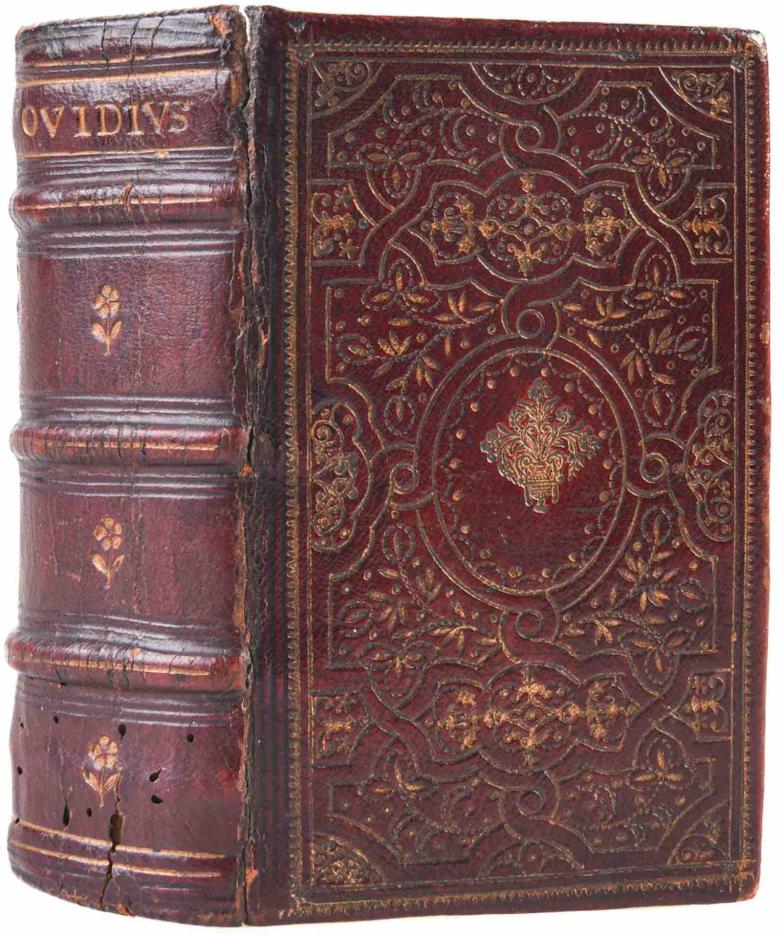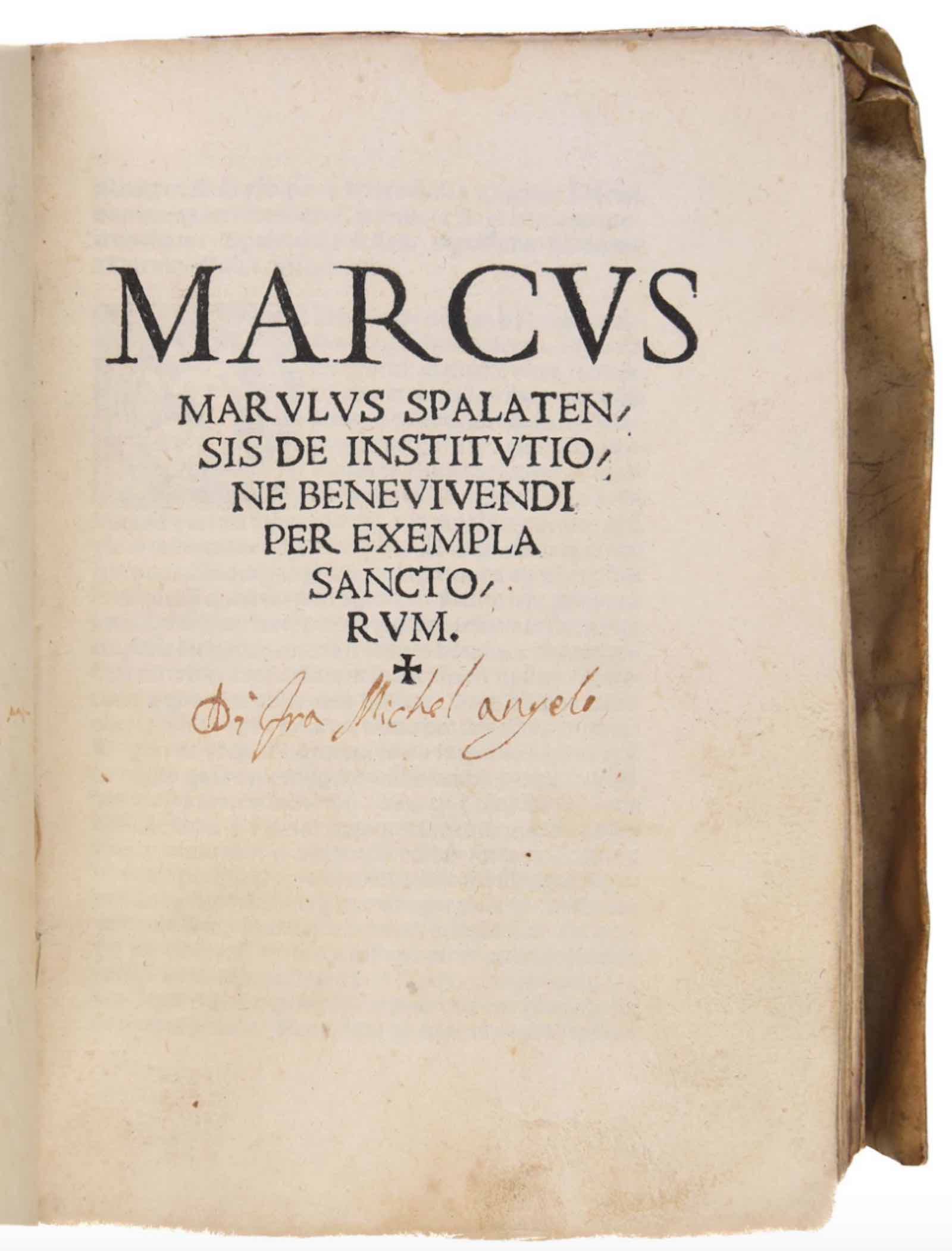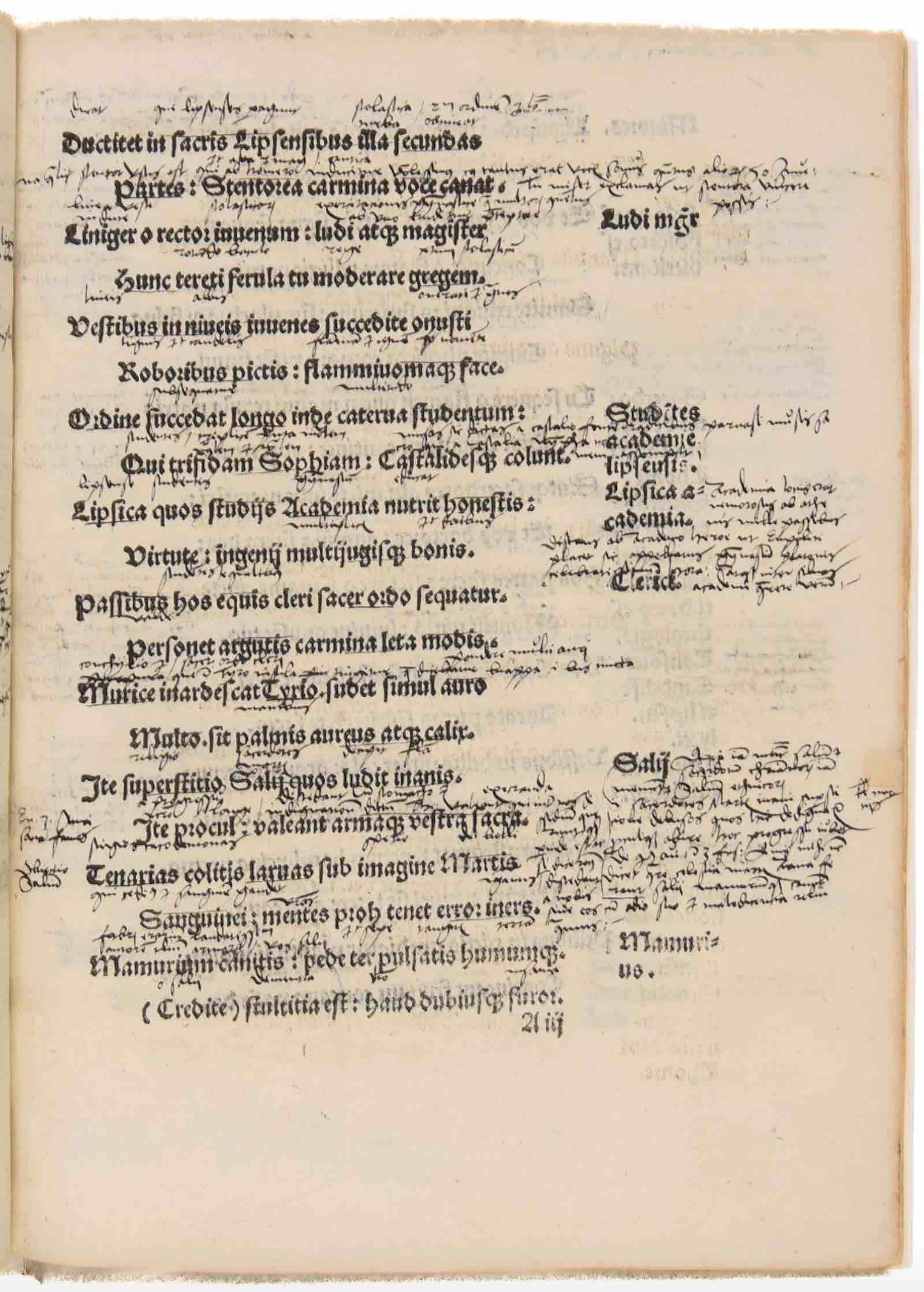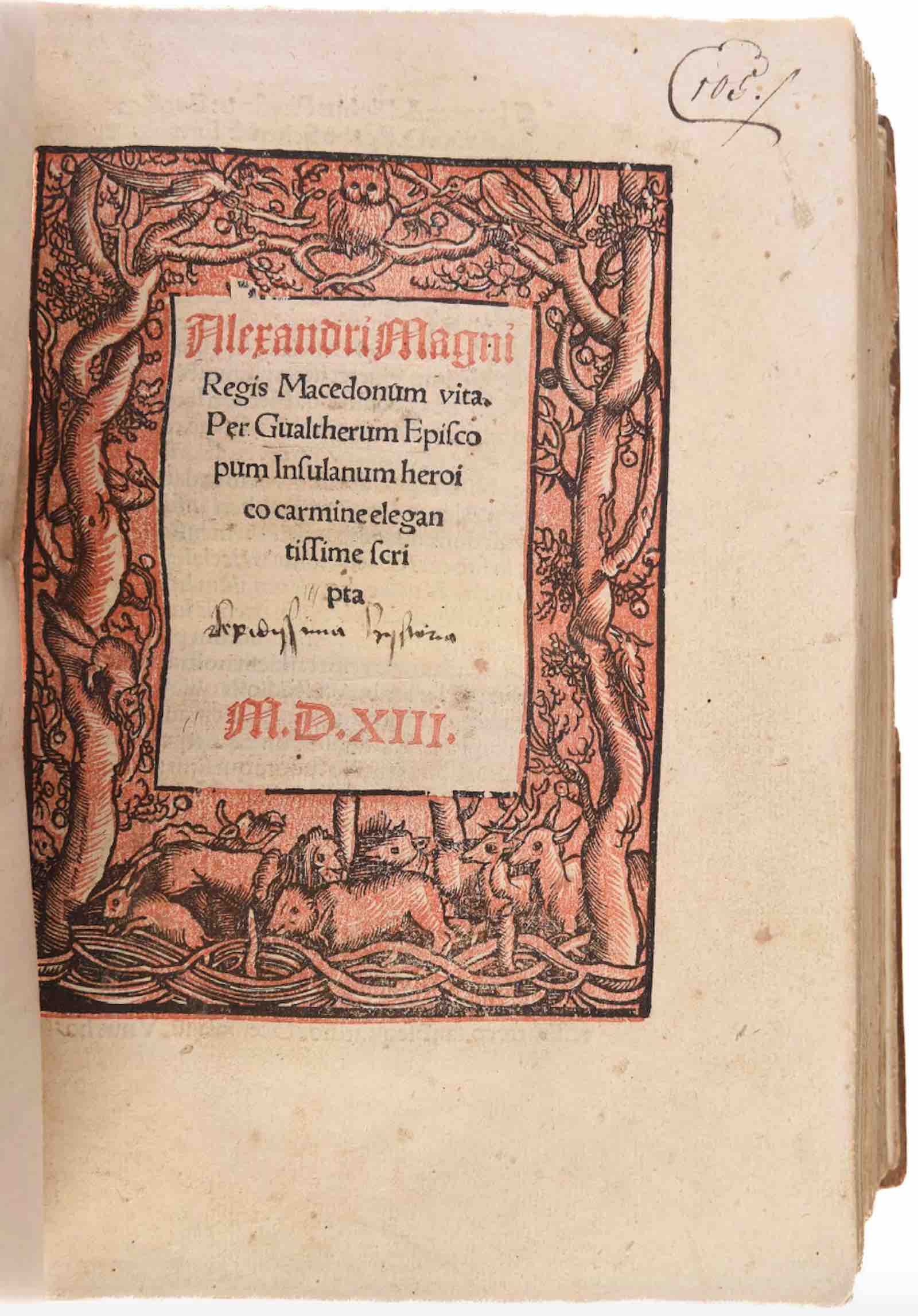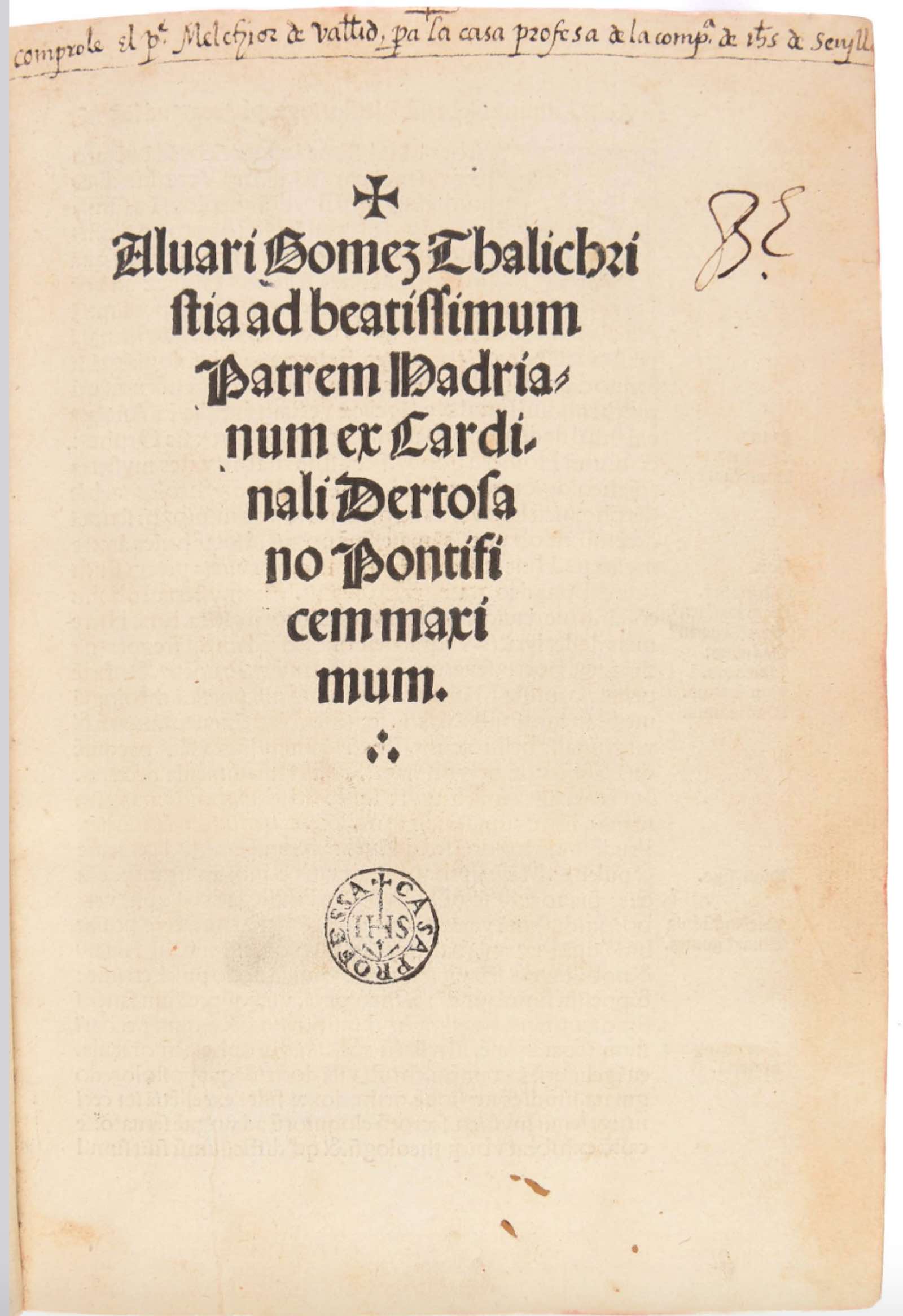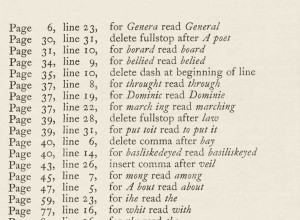* Carmen ad gravem by Johannes Tuberinus (Leipzig, Wolfgang Stöckel, 1512)
A heavily annotated copy of the first (and only?) edition of Tuberinus’ poem, filled with interlinear glosses of individual words and longer marginal notes. Extremely rare: Maggs Bros can trace no copies in US libraries and only one copy in the UK at Cambridge. The 140 lines of the poem discuss the Last Supper celebrated by Christ and his twelve disciples with versification of the words of consecration.
* Alexandri Magni regis Macedonum vita by Phillipe Gautier de Chatillon (Strasbourg: Reinhard Beck, 1513)
A fascinating early 16th-century collection of rare editions of largely literary and secular texts, including the 12th century epic poem on Alexander the Great, the Alexandreis by Walter of Châtillon, illustrated with an early chiaroscuro title-border by Hans Wechtlin. No doubt originally collected together and bound for a humanist scholar, who wrote ‘Lepidissima hystoria’ on the title of the Alexandreis, in 1789 the sammelband was bought by the noted German antiquary and bibliophile Joseph von Lassberg. The first edition of the Alexandreis (Rouen c. 1487-90, ISTC ig00048300) is extremely rare and known in only eight copies; this second edition is also very rare with VD16 recording only eight copies while OCLC records only four copies in US libraries.
* Thalichristia ad beatissimum patrem Hadrianum ex Cardinali Dertosano Pontificem maximum by Alvar Gómez
(Alcalá de Henares, Arnald Guillen de Brocar, April 1522)
Extremely rare first edition of this important product of Spanish humanism, with the distinguished English provenance of Richard Heber, the Britwell Court Library and JPR Lyell: no copies located in UK or US libraries. Alvar Gómez’s neo-latin poem in 25 cantos is dedicated to Pope Adrian VI, with a preface by the most influential Spanish humanist of the time, Antonio de Nebrija (1444-1522), who calls Gómez the ‘Christian Virgil’. His Thalichristia followed, according to Nebrija’s prologue, Pico della Mirandola’s theologia poetica in combining poetry and religion.

